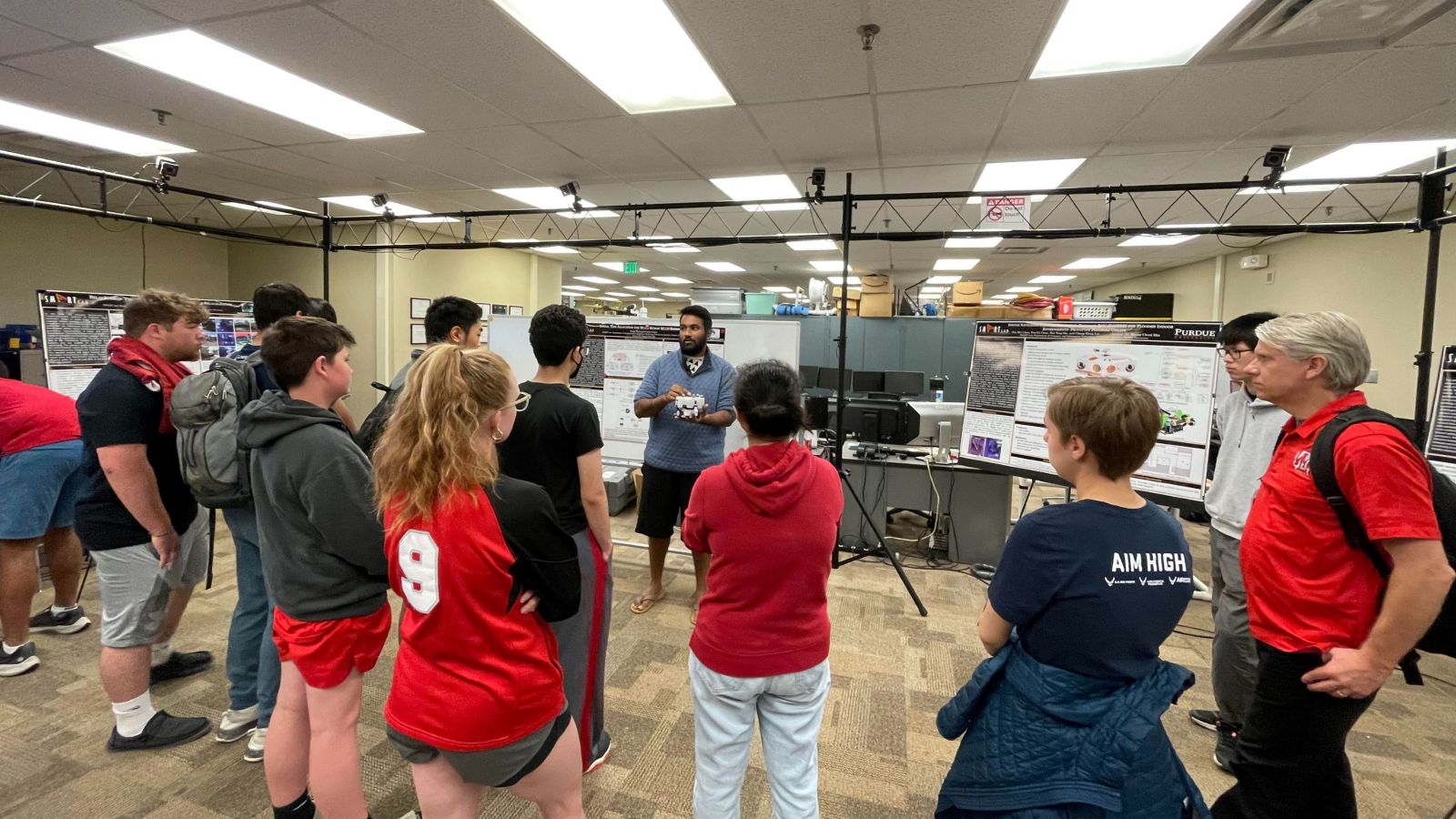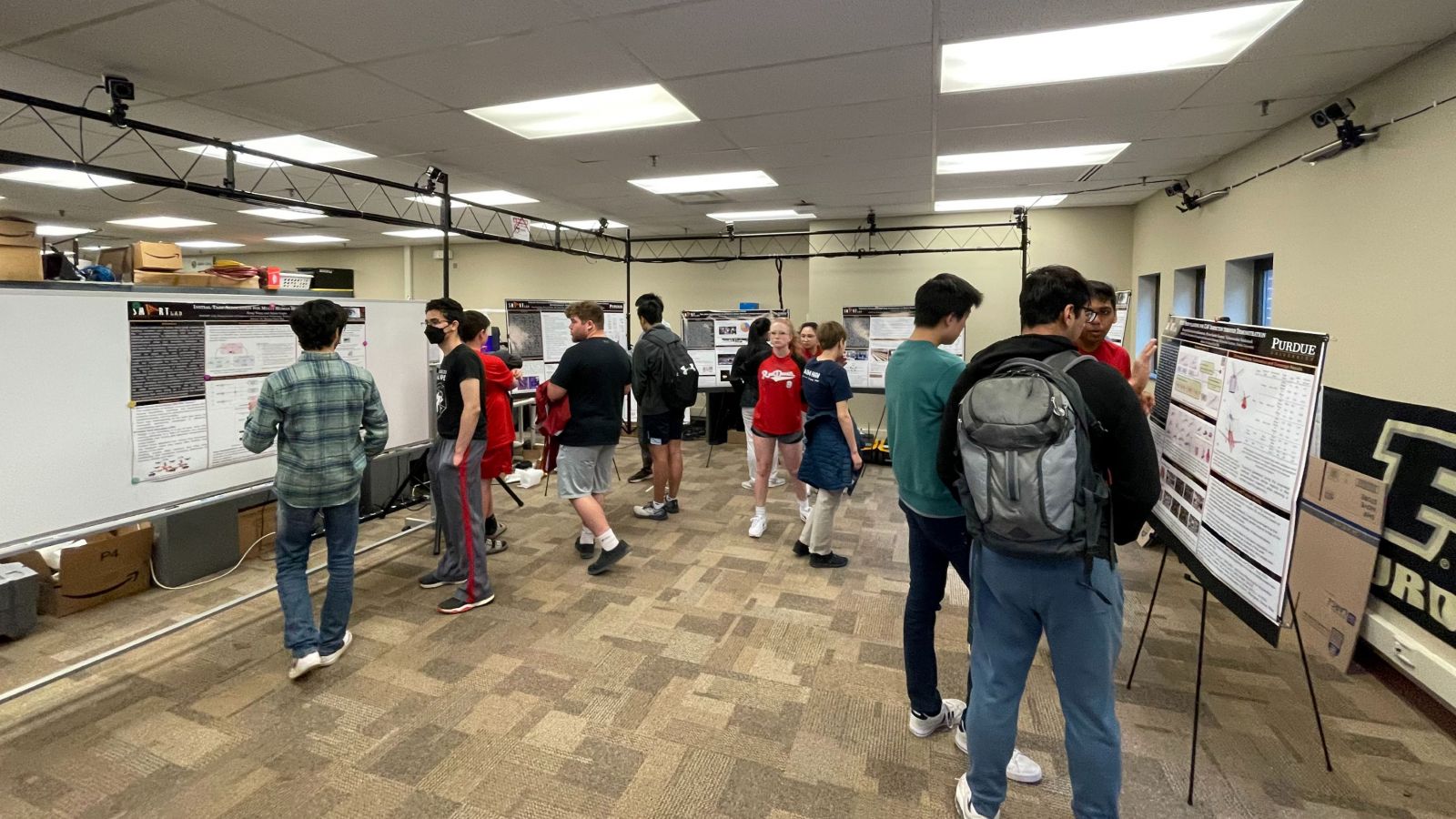
As part of an ongoing grant with the National Science Foundation (NSF), Byung-Cheol “B.C.” Min, associate professor of computer and information technology, hosted a five-day robotics education program at West Lafayette Junior/Senior High School (WLHS).
Min and his team of researchers comprise the SMART Lab, an organization affiliated with the Department of Computer Information Technology in Purdue University’s Polytechnic Institute. The SMART Lab is dedicated to innovating and researching complex multi-robot systems and how they interact with human beings. NSF’s grant allows the SMART Lab to conduct this research, but it has also specified the importance of K-12 educational outreach.
“My students had a great time working with the SMART Lab students and faculty. They were able to gain valuable experience in robotics and learn from some really knowledgeable people. I think the collaboration was a great way for them to expand their horizons and get a sense of what's possible in their field,” said Chris Woodard, WLHS computer science instructor and the lead collaborator from the high school’s side.
Implementing the Polytechnic’s leaning-by-doing strategies, the team stated that “throughout the five-day program, students participated in interactive lessons and hands-on coding activities.” Those activities allowed WLHS students to work with a wide array of operating systems, programming scripts and platforms.
Some of these systems have near-universal applications for any student who retains an interest in programming, while others are designed specifically for robotics. The students were even able to get an introduction to SMARTmBot, a platform designed in-house at SMART Lab to single-handedly control an entire system of robots. WLHS students had the additional benefit of learning under the guidance of Purdue student mentors, as Min’s research team includes students at both the undergraduate and graduate level, in Polytechnic programs and the College of Engineering.
As they delved deeper into the curriculum, the WLHS students were eventually able to simulate an “autonomous navigation system,” which involved tasks and challenges requiring a robot to arrive at target locations based on GPS coordinates.

Robots capable of completing these sorts of challenges are a familiar sight to Boilermakers; the “real-world application” of this technology can be seen in the Starship food delivery robots navigating their way to every imaginable corner of campus on a daily basis.
Min and his research team capped off the week with a visit to the SMART Lab, where the researchers “[introduced] students to state-of-the-art robotics research, hardware, and software. The curious students engaged in thoughtful conversations with the researchers and had their questions answered.”
Min stated that his primary student collaborators charged with mentoring the high school students were Arjun Gupte, a computer engineering undergraduate, and Ruiqi Wang, a PhD student in computer and information technology. “Both of them demonstrated exceptional leadership skills, were patient in explaining concepts, and motivated and guided their mentees. Overall, they handled their mentoring responsibilities very well, and their mentees benefited greatly from their guidance,” Min added.
The research team indicates that they found reaching out to WLHS to be more than worthwhile, with hopes for “future collaboration” which could include “additional workshops, mentorship opportunities and potential internships for the students at [the] SMART Lab.”
Additional Information
